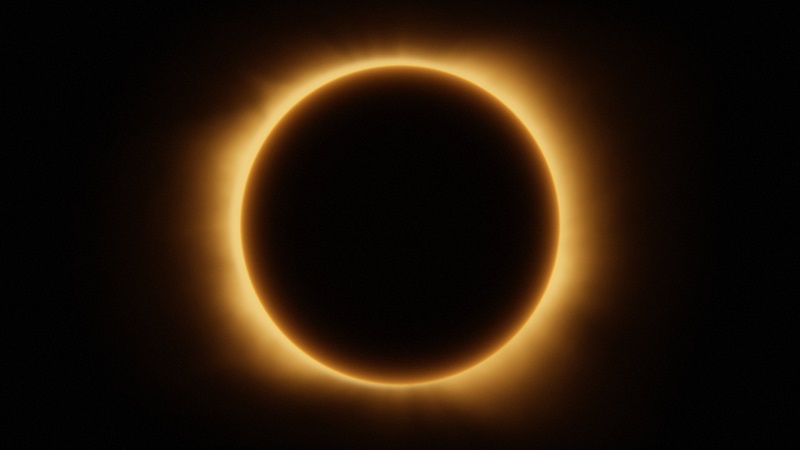
Keep your eyes safe: Why sunglasses aren’t enough
Get ready! On Monday, April 8, 2024, a solar eclipse will happen when the moon moves in front of the sun. In Toronto, it is expected to be a near-total solar eclipse between 2:04 p.m. and 4:31 p.m., with the peak happening at 3:19 p.m. That’s when most of the sun’s light will be covered by the moon.
Since this will be around the time many people are heading home from school or work, it’s crucial to plan ahead and stay safe.
Employers have an important job: to tell workers who spend time outside about the dangers of looking at the eclipse. They should complete a workplace hazard analysis and share the results with their workers. They should check out the tips below and have a chat with their workers about staying safe.
How to protect your eyes during a solar eclipse (tips from City of Toronto)
Looking straight at the sun, especially during an eclipse, is risky. It can hurt your eyes or even make you blind.
To avoid eye damage during a solar eclipse:
- Do not look directly at the eclipse at all.
- If you want to see it, only use safe solar eclipse viewers or filters that meet international standard ISO 12312-2. They will make the sun look comfortably bright like the full moon.
- Don’t use homemade filters, regular sunglasses, or other things not made for viewing eclipses.
- Do not use the viewer or filter if you’re unsure about its safety or if it is not from a reputable vendor.
- Don’t let children look at the eclipse without proper eye protection. Their eyes are more sensitive than adults’.
Tips when using eye protection:
- Read and follow all instructions.
- Check the viewer or filter for any damage, wrinkles, punctures or scratches before using it.
- Put on the viewer before looking at the solar eclipse and turn away from the eclipse before removing the viewer.
- Make sure children use their eye protection correctly and provide adult supervision.
Dangers of looking at the solar eclipse without proper eye protection
Staring at the sun without protection may cause solar retinopathy, which is damage to your retina – the tissue at the back of your eye. You might not feel any pain right away, but later on, you could have blurry vision, or even lose your sight.
Symptoms may only surface 12 to 48 hours later and could involve retinal burns, temporary or permanent vision loss, and blurred vision. Unfortunately, once symptoms start, it is usually too late to reverse any resulting damage.
If you experience any changes in your vision following the solar eclipse, go to a hospital or your optometrist to be assessed. Do not drive.
Workplace safety during solar eclipse
To keep everyone safe during the eclipse, employers can provide:
Education and training: Provide workers with comprehensive training on the risks associated with the eclipse and the importance of using proper eye protection.
Access to protective equipment: Supply workers with certified solar eclipse viewing glasses or welding helmets equipped with appropriate filters to safeguard their eyes.
Task management: Consider rescheduling outdoor tasks that require optimal visibility or precision during the eclipse period to minimize risks. If possible, avoid travel between the hours of 2 p.m. and 4:30 p.m. when the sky will be darkest. If you must drive, avoid looking at the sun, ensure your headlights are on, and watch closely for pedestrians. Do not take pictures while driving, and avoid stopping to take pictures. There is a high potential for distraction during the eclipse.
Emergency preparedness: Have protocols in place for addressing any incidents or emergencies that may arise during the eclipse.
Supervision and monitoring: Supervisors should actively monitor workers to ensure compliance with safety protocols and provide help or guidance as needed.
By focusing on safety, employers can make sure everyone stays safe while enjoying this rare event. Remember, it's better to be safe than sorry.
Photo credit: Canadian Space Agency
Related
Working outdoors - Ministry of Labour, Immigration, Training and Skills Development
Solar eclipse safety – Canadian Association of Optometrists
How to safely observe a solar eclipse – Government of Canada
IHSA offers tips for safe solar eclipse viewing – Infrastructure Health and Safety
